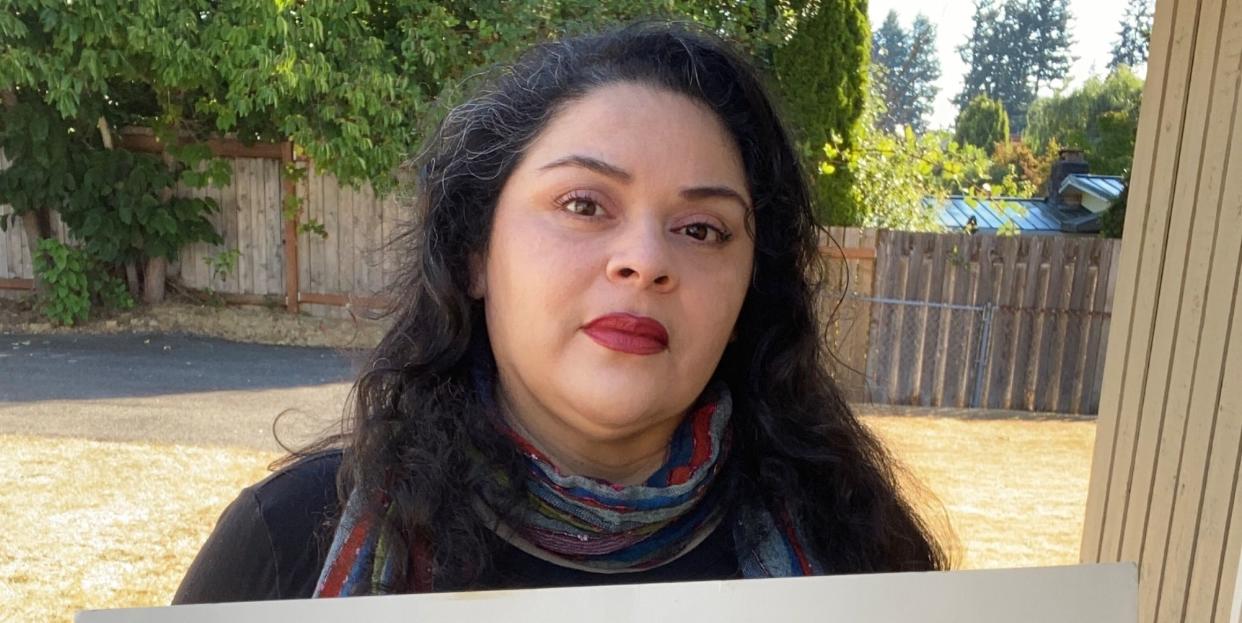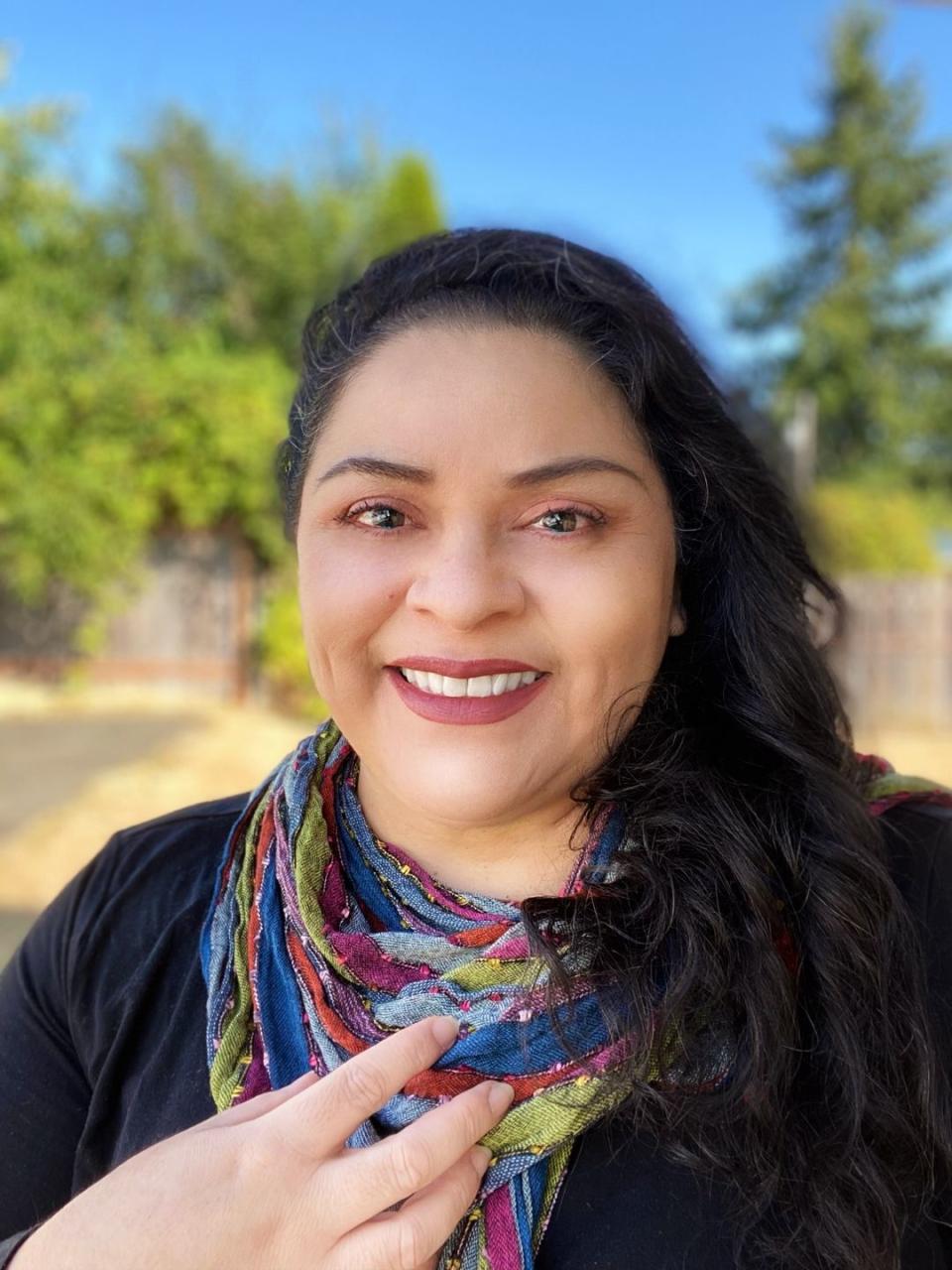My Depression Is Unfortunately Not Something I Can Just “Get Over”

It’s hard to pinpoint when I started to experience depression. It’s not as if there is an X-ray or blood test that tells you that your sadness has morphed into depression. But in my early 20s, I started to have crying episodes that I couldn’t control. I didn’t fully understand it, but I would just go into bed and stay there until I was able to compose myself, which often took several hours.
In my mid-twenties, I went through a lot of upheaval. My mother passed away, my fiancé and I broke up, and I started college in a new town. I was in transition and was having a hard time adjusting to it all, and my crying episodes went from consuming several hours at a time to consuming days at a time. But I figured it made sense that I was upset then—I was going through a lot—and I thought that when things got more stable, I would be fine.
This story is part of Prevention’s We Are Not Invisible project, a series of personal and informative stories that shed light on those with Invisible Disabilities in honor of Invisible Disabilities Week 2022.
But I continued to feel an underlying sadness into my 30s, so when I was given good healthcare benefits through my job as a mental health paraprofessional for the county, I went to see a therapist immediately. I also tried a range of antidepressants in the hopes of finding one that would work well for me. But the process put me on an emotional rollercoaster. I did find that therapy helped me and I eventually found medication that lessened my depression but I still had bouts of time where I would feel hopeless, alone, and physically and emotionally exhausted. My body would feel so heavy, it was an effort to do the simplest things, like walk into the other room—and I just couldn’t muster the energy to care about anything. Even though I knew intellectually that there were things that were important to me, there was this huge disconnect with what I felt emotionally. I then began to have suicidal thoughts that I could almost hear saying, “everything would be better without you. Things would be easier for you and for everyone else if you weren’t here.”
A terrifying turning point in my depression
By the time I was in my mid to late 30s, things got even worse and my depressive episodes would last for months on end, often causing me to miss work. But I kept it mostly to myself. I hid it from my boss and colleagues and didn’t even confide in my sister or father. Then one day, I just hit a point where I’d had enough. I was so sick of being in that awful emotional state. Even if I could get a moment or a few months of comfort, the depression always overcame me, so I gathered up all of my pills and threw them on the kitchen counter. I picked up my dog and told her I was so sorry, and then I went to take the pills. I remember crying so hard I could barely see them through my tears, and then I heard something inside me say, “call the hospital.” As someone who worked in mental healthcare, I knew the protocol, and somehow I was able to call the hospital and drive myself there. I barely remember what happened when I arrived. I was almost nonverbal at that point. But it saved my life.
I was in the hospital for three days, and then took a disability leave from work to attend intensive therapy programs. Finally, I confided in my family, and extended my work leave for almost a year.
It was one of the hardest times of my life and I was terrified that I wouldn’t ever be well enough to work again and support myself. I also felt the stigma of depression when people who didn’t understand it would say things to me like “It’s not that bad, you’re making a big deal out of nothing,” or “why can’t you just get over it?” Even when I eventually went back to work at the mental health clinic, it seemed that my boss and colleagues had lost patience with me and they didn’t recognize that I was recovering from a severe illness. I’d asked for the accommodation that I work in quality assurance because it didn’t involve direct client contact, and they let me do that initially. But my supervisor quickly became very frustrated that I wasn’t ready to work with clients again. Each month I had to fight to maintain my accommodation and at one point, the director of the department even said to me that he didn’t care what I did because I was crying so much he just wanted me to get out of his office. And that was a director at a mental health clinic!

Living with depression
Outside of work, I was open to trying anything and everything that might help. I went to a therapist, took new medication, began attending Buddhist meditation sessions, went to spiritual retreats, tried different coaching techniques, and saw a naturopath, among other things.
One day, I was on a walk with a friend, and I mentioned some of the things I was doing in my attempts to get better, and she said, “you really love yourself—because look at everything you’re doing for you.” And it dawned on me that she was right. I hadn’t realized that all of the things I was doing were me trying to take care of me. Looking at my recovery from that perspective was a shift and helped me to acknowledge that I valued myself and wanted to live.
Eventually, I found a new job I liked, started seeing a great therapist, and decided to go back to school to get my counseling degree and license. I felt like I had a lot more ground under my feet, and after I completed my schooling in my early 40s, I went back to work for the county as a therapist.
Today, I have a private practice, which gives me more flexibility to take care of myself, and I live with my empathetic and understanding partner. Of course, the pandemic really turned things on its head and I still struggle with depression. I continue to worry that if it gets worse, I won’t be able to work—and the financial stress weighs on me. But what’s different now is that I’ve learned to allow myself time, rest, and support when I feel depression flaring. I almost treat it like I’d treat the first signs of a cold: when you feel that sore throat or stuffy nose coming on, you stay in bed, eat soup, and rest until you feel better. So I do the same with my chronic depression, and take a step back until it passes. Sure enough, it always does.
If you or someone you know is considering suicide, please contact the National Suicide Prevention Lifeline by calling 988, texting “STRENGTH” to the Crisis Text Line at 741-741, or going to 988Lifeline.org
Back to the We Are Not Invisible project
You Might Also Like

